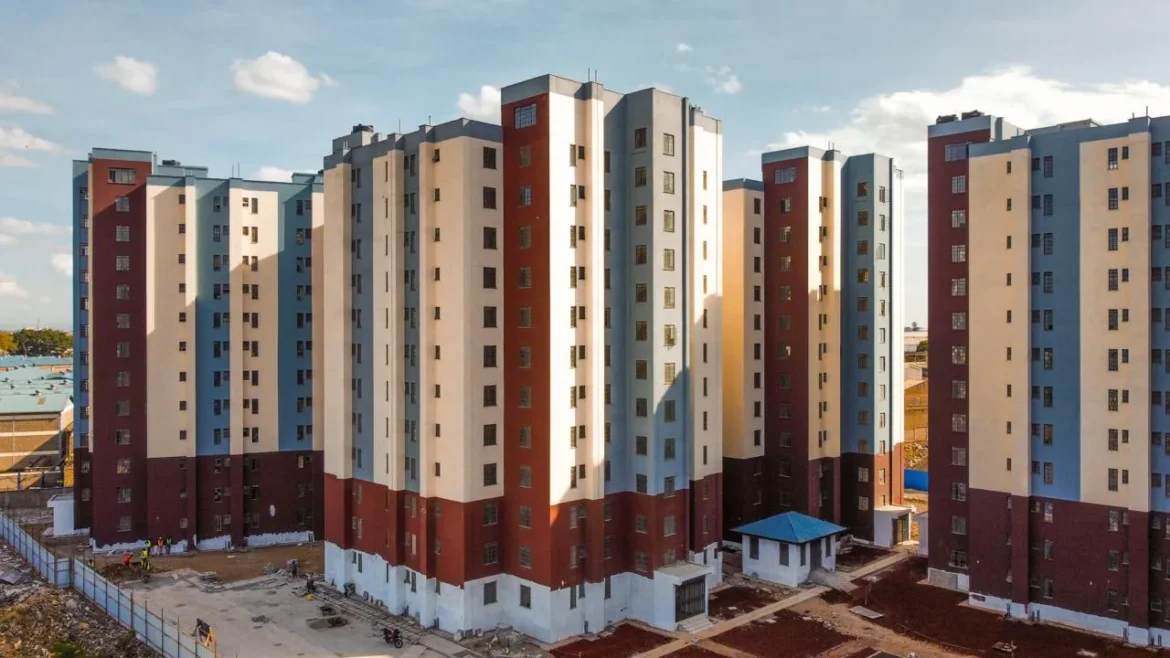Kenyans.co.ke has reported that Kenyans who wish to live in the government’s affordable housing units may have to pay up to Ksh10,000 per month for a bedsitter despite these houses being promoted as subsidised.
This comes after it was revealed that in addition to monthly rent, tenants will also need to cover extra costs like water, gas, and WiFi. These charges have raised serious questions about whether these homes are truly affordable, especially for low-income earners.
The Affordable Housing Programme, which President William Ruto has been pushing as a solution to Kenya’s housing crisis, is now being viewed with skepticism.
During a discussion on Wednesday, Johanna Ng’eno and Yusuf Chanzu, who are involved in the affordable housing sector, shared more details about how payments will be structured.
They clarified that the government’s affordable houses are not any different from private housing in terms of how tenants are charged. Ng’eno explained that the Ksh3,900 monthly charge for a bedsitter includes Ksh2,700 for rent-to-own and Ksh1,200 for service charges.
However, this figure does not include water, gas, or internet. Ng’eno further stated that tenants will have to pay separately if they want to use the utilities provided. For example, using gas, water, or WiFi will all cost extra.
Ng’eno said that the government is supplying the gas, water, and WiFi, but it is not free. For WiFi, tenants will pay Ksh10 per day, which adds up to about Ksh300 each month.
Gas, although subsidised, will still cost between Ksh500 and Ksh1,500 depending on usage. For water, the situation is even more concerning. While the government has not officially released the full water cost, it is believed that tenants could be charged a fixed service fee of around Ksh3,000 every month.
This does not include the cost of buying extra water, especially in areas where supply is limited. In some regions, a 20-litre jerrycan of water can cost anywhere between Ksh20 and Ksh150.
When you add up these costs, the total monthly expenses for someone living in a government bedsitter could range from Ksh7,700 to Ksh10,650. This figure includes Ksh3,900 for rent and service charge, at least Ksh500 for gas, Ksh300 for WiFi, and up to Ksh3,000 for water.
These added expenses have made many Kenyans question whether the housing plan is helping or hurting those it was meant to assist. Ng’eno said that people who do not want to use the provided gas can still use other options like a jiko or stove, but this will depend on the rules of each estate.
The programme is designed in such a way that tenants will keep paying monthly rent for 30 years before they can own the houses. However, the period could be shorter if someone decides to pay more than the set amount every month.
Still, the rising cost of utilities might make it hard for many Kenyans to manage even the basic payment. While the goal of the affordable housing project is to provide homes for millions of Kenyans, the actual expenses may lock out the very people it was supposed to help.
Many are now asking whether this is truly affordable or just another project that benefits those who already have money.



